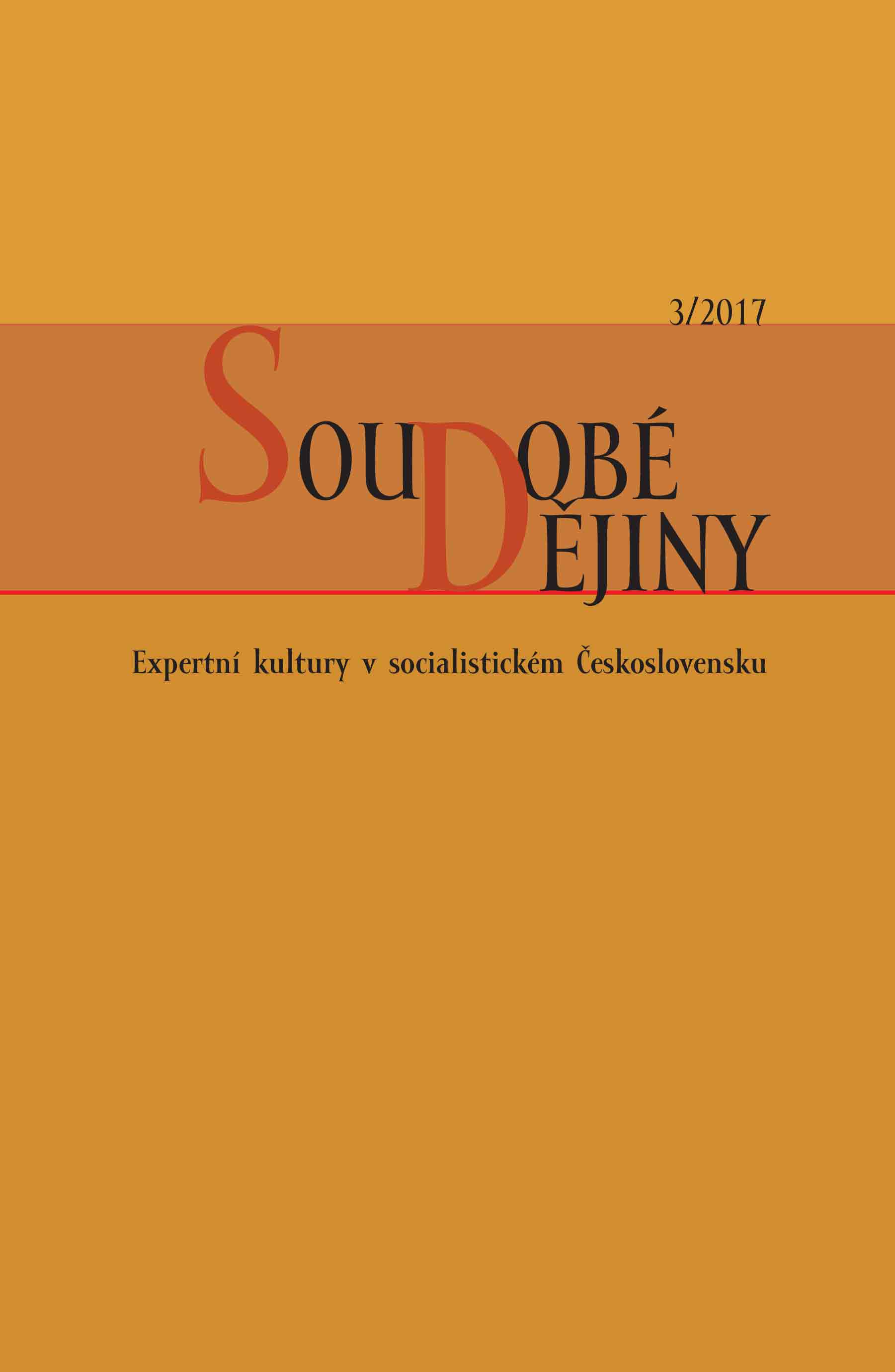Bohatství pod neviditelným pláštěm?
Wealth under an invisible cloak?
On psychotherapy in Czechoslovakia after 1968
Author(s): Adéla GjuričováSubject(s): History, Cultural history, Recent History (1900 till today), History of Psychology, Post-War period (1950 - 1989), Transformation Period (1990 - 2010), History of Communism, Post-Communist Transformation
Published by: AV ČR - Akademie věd České republiky - Ústav pro soudobé dějiny
Keywords: psychotherapy;expert cultures;Czechoslovakia 1948–89;
Summary/Abstract: The study opens the topic of the functioning of the expert environment of psychicdisciplines (psychiatry, psychology, psychotherapy, etc.) in socialist Czechoslovakia;not in the sense of their intradisciplinary evolution, but rather with a view to transformations of their social and cultural function and relationship to political powers-that-be. The authoress monitors the professional community of psychotherapists since the 1960s, its semi-official institutional and educational platforms, promotion of psychotherapy in the socialist system of medical care, relation of psychotherapy to other psychic disciplines, and communication with professional trends in the West. She focuses mainly on the first educational psychotherapeutic system in Czechoslovakia known as SUR (it is an acronym consisting of the initials of its three founders – Jaroslav Skála, Edmund Urban and Jaromír Rubeš), which was in use since 1967 and which some 2,000 participants passed through by theend of the 1980s. It was characterized by a self-experience training principle, with therapists applying the same methods and regimes to themselves as to patients. Since 1989, the discipline has experienced a tremendous boom and psychotherapeutic approaches to interpersonal relations and to the “ego” have become not just an “in” thing and a good business, but also a deeper part of everyday life. The authoress confronts the transformation with literature dedicated to the so-called psychotherapization of society in Western Europe. She concludes that analyses of psychic disciplines as tools of expert rule (Nikolas Rose), which were inspired by Michel Foucault, while potentially tempting as an interpretation tool of the periodof neo-liberal dominance in the Czech Lands, ignore the specific historical context ofthe subversive nature of psychotherapy during the period of late socialism, utilization of resources of the socialist medical care system, and their failure after 1989.
Journal: Soudobé Dějiny
- Issue Year: XXIV/2017
- Issue No: 3
- Page Range: 311-334
- Page Count: 24
- Language: Czech

